Microsoft’s new Surface Laptop 7 and Surface Pro 11 bring Copilot AI to the device
We explore another venture into consumer-grade AI, courtesy of Microsoft’s two new dedicated Copilot+ PCs, the Surface Laptop and Surface Pro
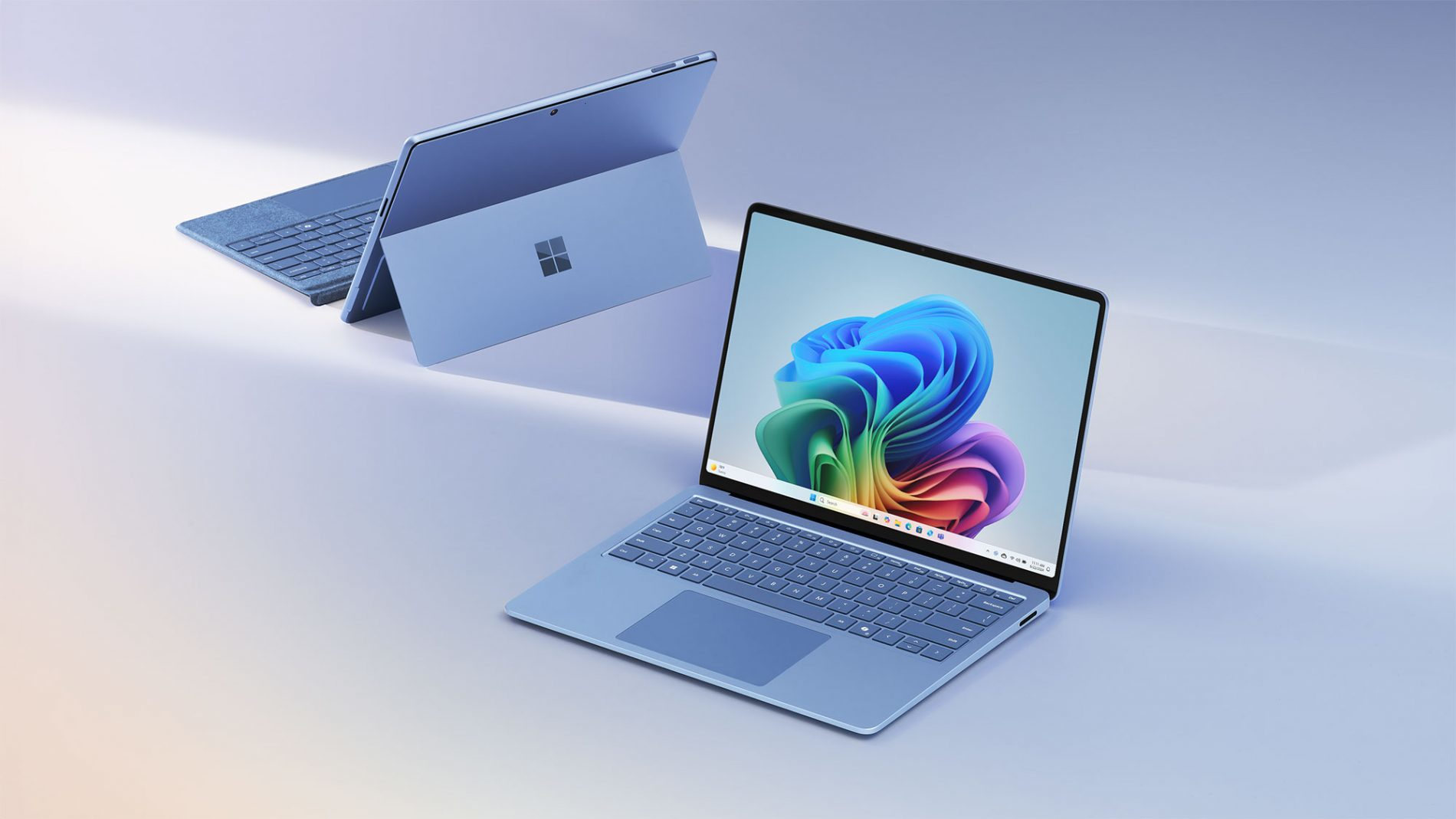
It’s probably not escaped your notice that Artificial Intelligence is undergoing something of a PR push. With the key computing and smartphone players all ramping up their adoption and integration of AI-powered tools on their devices, it’s hard to navigate exactly what the benefits will be in amongst the high levels hype, praise, and peril that have accompanied the tech’s arrival.
Take Microsoft. Google has Gemini, Apple has its upcoming Apple Intelligence, and Microsoft has Copilot, a form of AI baked into the newest generation of Windows, providing you have the latest hardware on which to run it. Naturally, this includes Microsoft’s own flagship brand of laptops, Surface.
Microsoft Surface Laptop 7 review
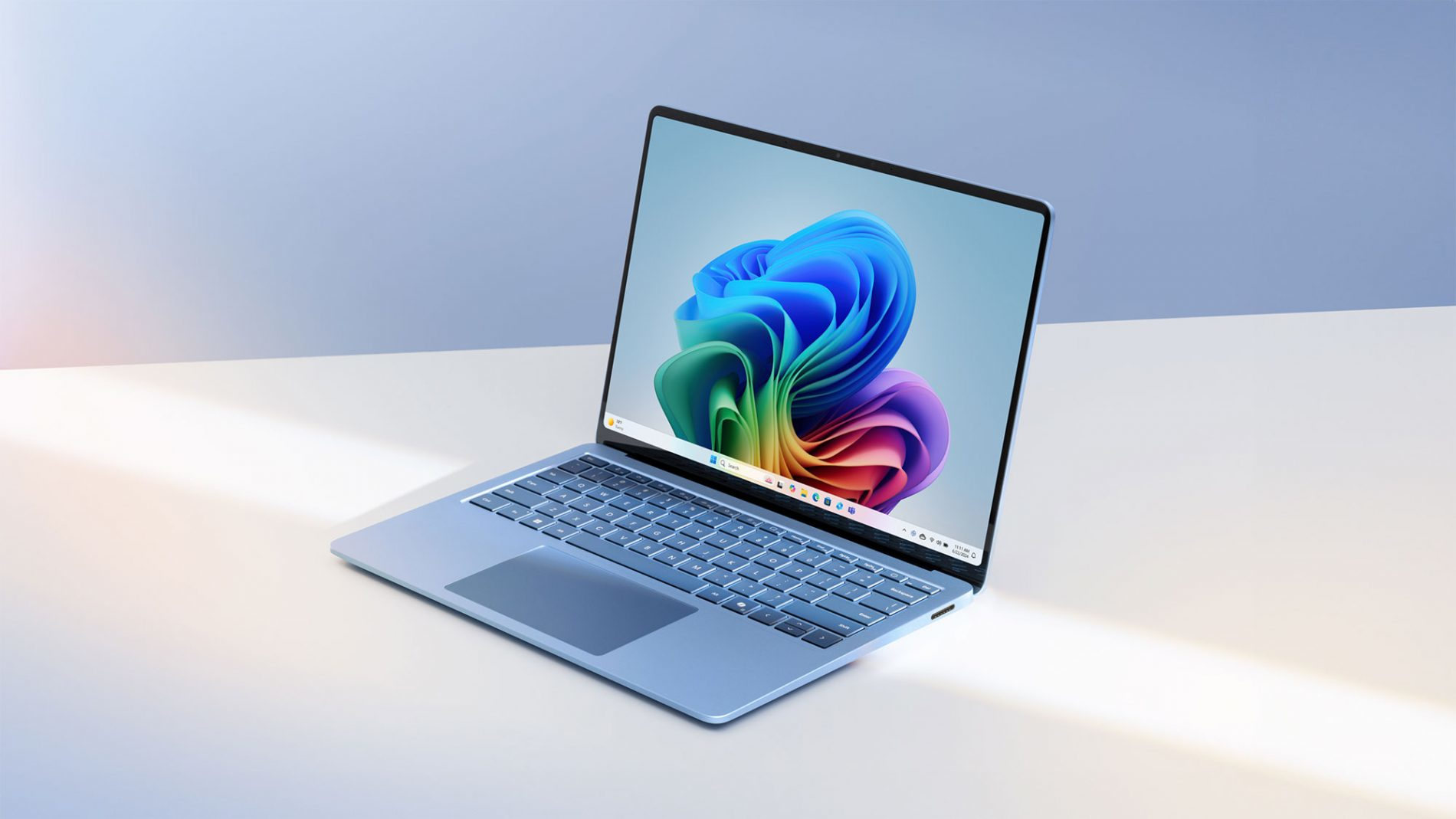
Microsoft Surface Laptop 7th edition
Microsoft has now launched what it calls the ‘ultimate Copilot+ PCs’, the new Surface Pro and Surface Laptop. We’ve been trialling the latter to find out what all the fuss is about, and whether AI is really the game-changer that search giants and chip and device makers want it to be.
First up, the hardware. The Surface series has evolved gradually over the years to form two distinctive product lines. The Surface Laptop is a conventional, handsome machine with a metal casing, thin-edged bezels, and a Snapdragon X Elite processor at its hard. There’s a haptic touchpad for more depth and variety of interaction with the screen, a full HD webcam, and a dedicated Copilot key to the right of the space bar.
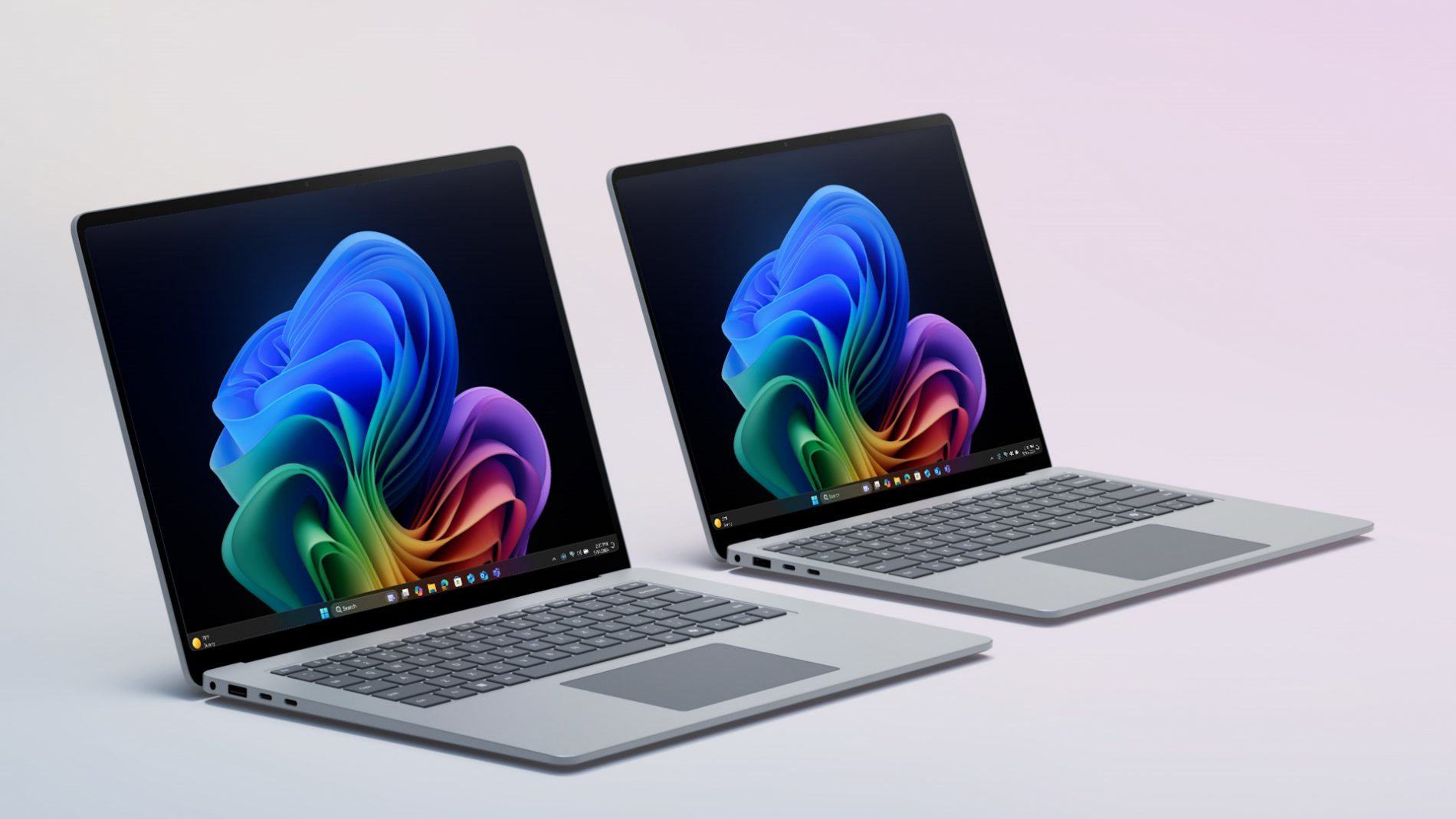
The 15” and 13.8” versions of Microsoft's Surface Laptop 7th edition
Available in two screen sizes, 13.8in and 15in, the Surface Laptop is now on its seventh edition. Memory options start at 16GB and go up to 64GB, while storage runs from 256GB up to 1TB. So far, so conventional. What sets the new Surface Laptop apart from its early iterations is its battery life, which Microsoft claims can be up 22 hours of use for the larger 15in model, putting it in MacBook territory for the first time.
In practice, that Copilot key simply brings up the dialogue box to access the AI, which you can simply treat as a glorified search bar. The company walked back some of the original functionality when it was pointed out that the proposed ‘Recall’ tool, which tracks user activity as a way of building up a profile of likes, dislikes and work patterns, could be a complete gift for hackers.
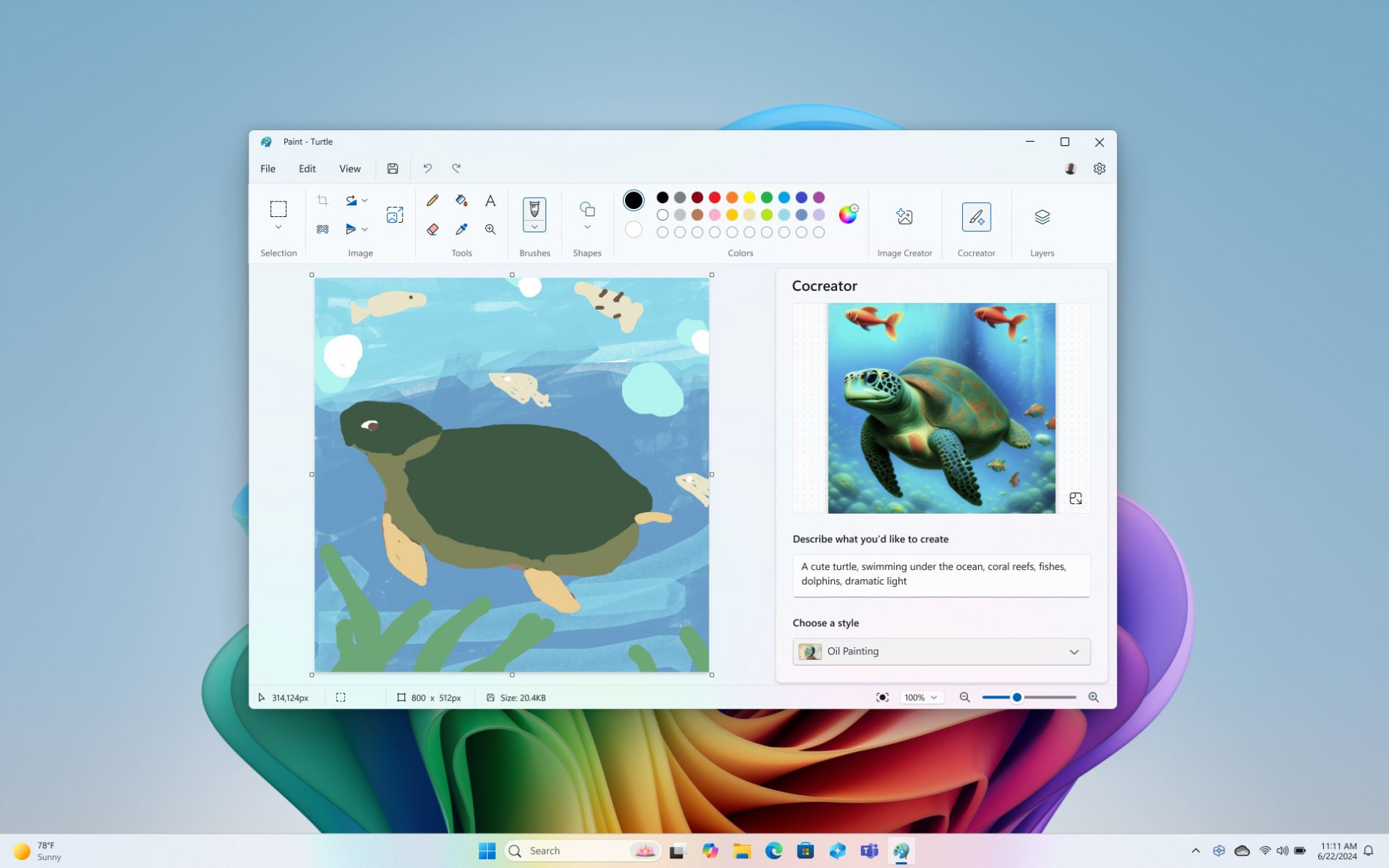
Microsoft's Cocreator software in action
It all comes down to use case. The company demonstrated Copilot’s abilities by showing how it can combine a prompt and a rough sketch to generate pro-looking imagery (although the three-eared rabbit it showed us wouldn’t pass any authenticity tests). The results tend to err on the now familiar ‘AI airbrush’ style of visual graphics, which is to say fun but rather hollow. The inclusion of a ‘creativity’ slider in the Paint app’s Cocreator function won’t stave off artists’ fear of AI obsolescence, something Microsoft is belatedly noting. ‘Remember, while AI can enhance productivity, it won’t replace human creativity and connection!’, the system appends to the end of a generated summary explaining how people are using Copilot today. For good measure, it adds emojis of a smiley face and a rocket ship.
Wallpaper* Newsletter
Receive our daily digest of inspiration, escapism and design stories from around the world direct to your inbox.
While a lot of this computation happens in the cloud (with corresponding energy use), Microsoft says the Snapdragon chip’s inbuilt NPU (Neural Processing Unit) can do some of the AI heavy lifting on the laptop itself. The need for connectivity to drive AI-led creativity is not necessarily a dealbreaker, but it’s an inconvenience – just ask any designer or musician how they feel about cloud-based applications suites and libraries.
Microsoft Surface Pro 11: a fantastically well resolved piece of industrial design
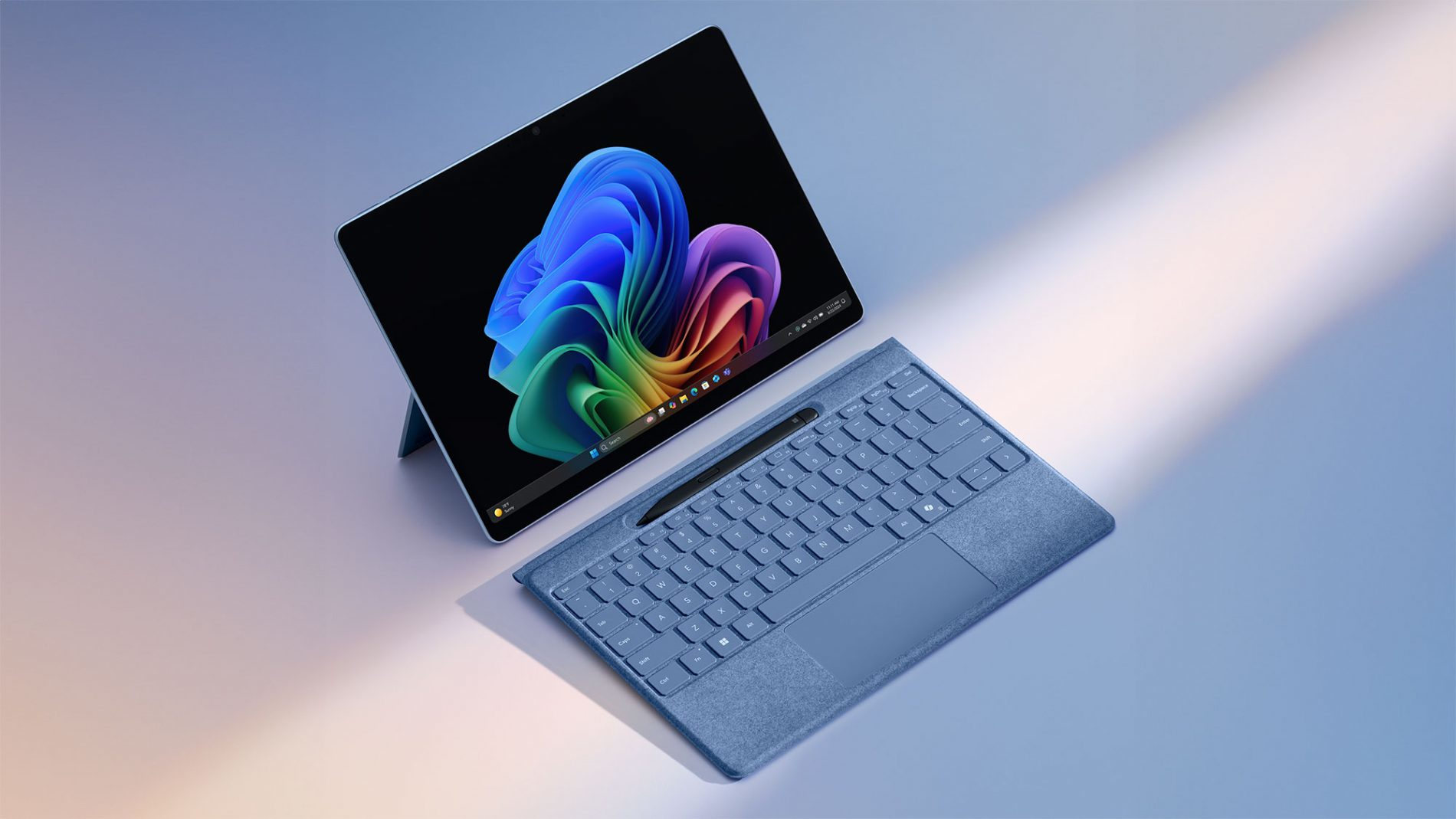
Microsoft Surface Pro 11th edition
Notably, Microsoft has managed to make its new devices far more repairable than ever before, concealing upgrade paths and access points in the sleek industrial design to help third party companies hugely prolong the Surface’s life. Surface Pro, on the other hand, is a fantastically well resolved piece of industrial design. This is the 11th version of the 2-in-1 device that pioneered having a detachable keyboard to turn it into a tablet. The introduction of the new Surface Pro Flex Keyboard adds another layer of possibility. The Flex can be completely detached from the screen and still used as a keyboard and trackpad, offering up numerous use cases, with onboard stowage and charging for the Surface Slim Pen 2.
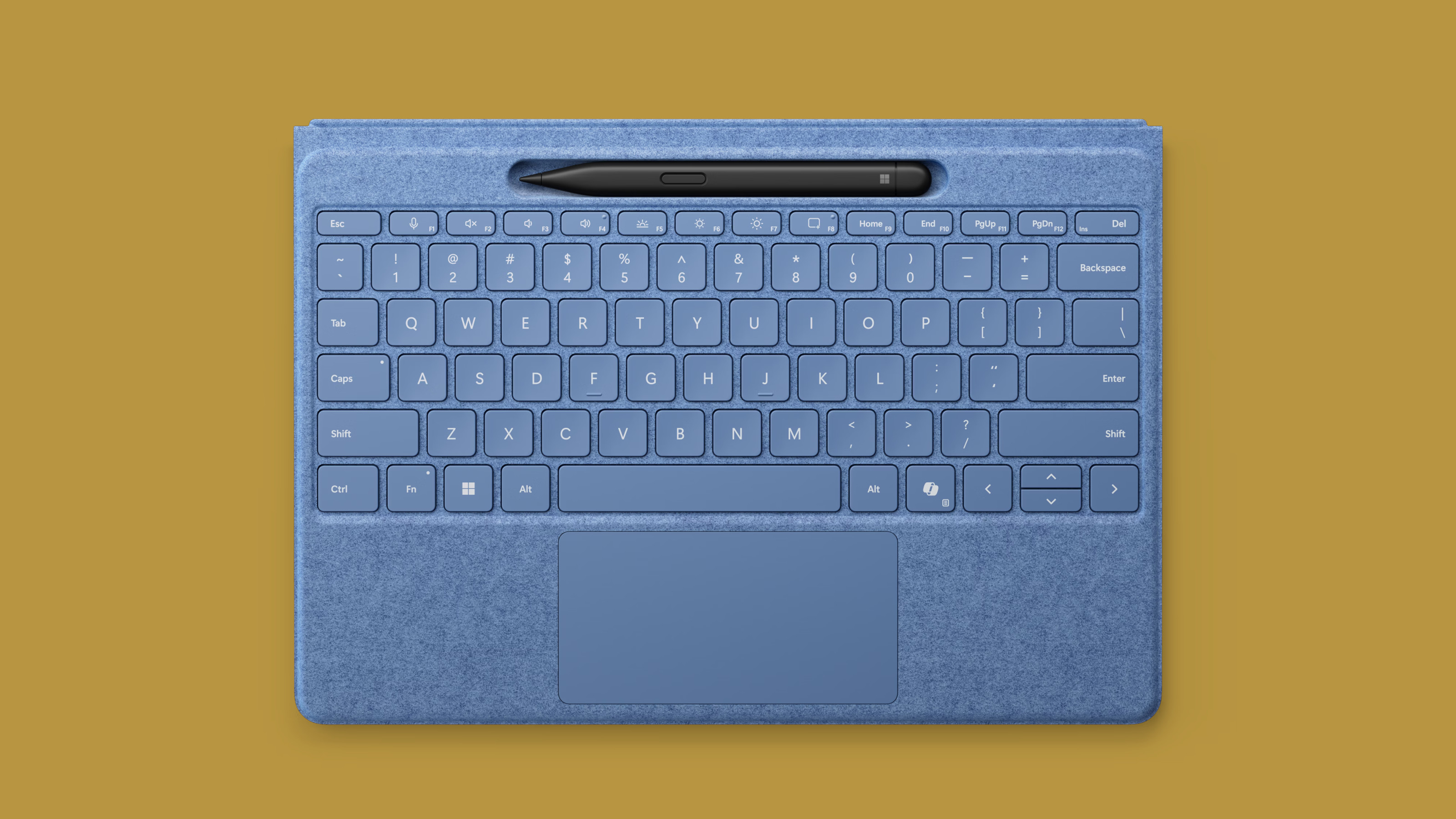
Microsoft Surface Pro Flex Keyboard in Bright Sapphire
Surface Pro is also available with an OLED screen for the first time and storage options mirror that of the Surface Laptop, although the Pro tops out at 32GB RAM. A slimmer, lighter device, it offers enough battery for up to 14 hours of video playback.
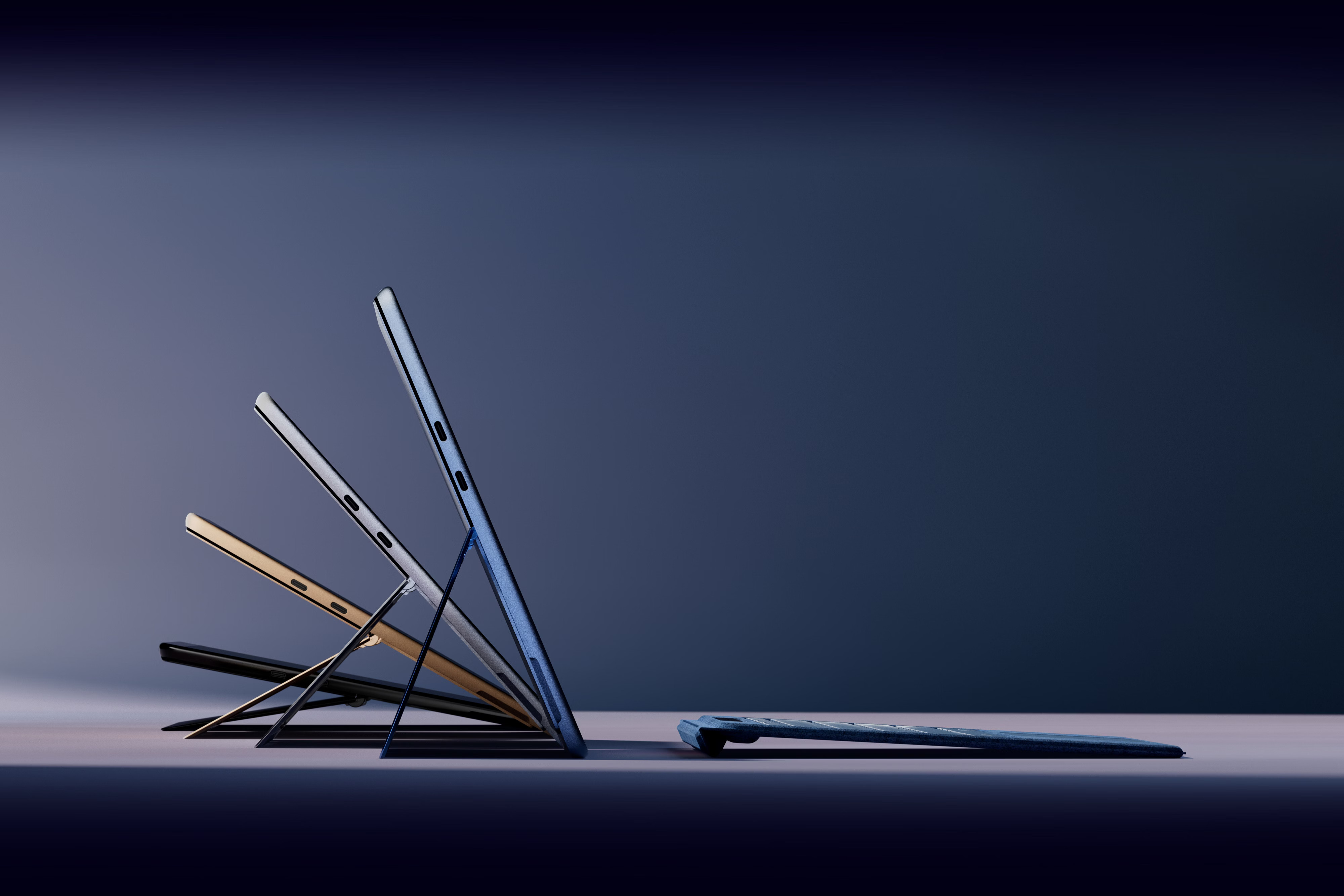
Microsoft Surface Pro 11th edition with Pro Flex keyboard
How will Copilot AI improve your life? Right now, Copilot feels like a tool developed for Microsoft’s own work culture, and other likeminded corporate behemoths, where the idea of automated, quasi-intelligent agents to schedule meetings and summarise endless proposals and presentations feels like a solution to endless digital grind.
All this points to a dystopian future office scenario where AIs are set to aggressively schedule meetings with each other and compete at ruthlessly paring documents down to a handful of bullet points. It’s not a universal panacea, let alone a herald of a golden age of creativity. As a form of smarter search, AI in its current form has some validity, although whether that will ever outweigh the environmental cost of training and maintaining the vast datasets remains to be seen.
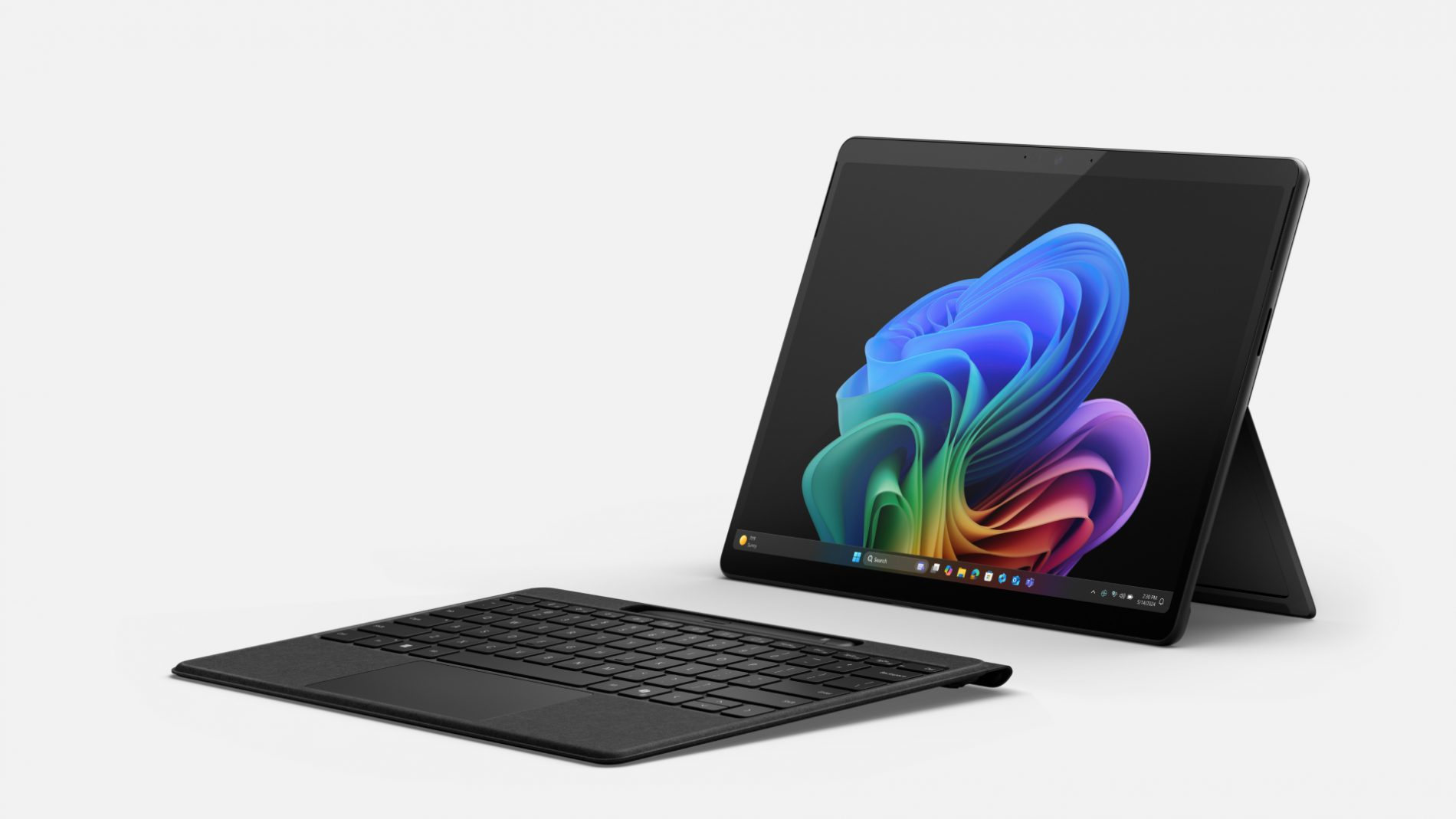
Microsoft Surface Pro 11th edition
These are great devices, no question, although it’s the new silicon that’s the star, not the AI software. You can certainly celebrate speed, endurance and durability of Microsoft’s new Surface hardware but Copilot isn’t the category killer that will change personal computing for good.
Microsoft Surface Pro, from £1,049, available from Microsoft.com
Microsoft Surface Laptop, from £1,049, available from Microsoft.com
Jonathan Bell has written for Wallpaper* magazine since 1999, covering everything from architecture and transport design to books, tech and graphic design. He is now the magazine’s Transport and Technology Editor. Jonathan has written and edited 15 books, including Concept Car Design, 21st Century House, and The New Modern House. He is also the host of Wallpaper’s first podcast.
-
 Isolation to innovation: Inside Albania’s (figurative and literal) rise
Isolation to innovation: Inside Albania’s (figurative and literal) riseAlbania has undergone a remarkable transformation from global pariah to European darling, with tourists pouring in to enjoy its cheap sun. The country’s glow-up also includes a new look, as a who’s who of international architects mould it into a future-facing, ‘verticalising’ nation
By Anna Solomon
-
 The Lighthouse draws on Bauhaus principles to create a new-era workspace campus
The Lighthouse draws on Bauhaus principles to create a new-era workspace campusThe Lighthouse, a Los Angeles office space by Warkentin Associates, brings together Bauhaus, brutalism and contemporary workspace design trends
By Ellie Stathaki
-
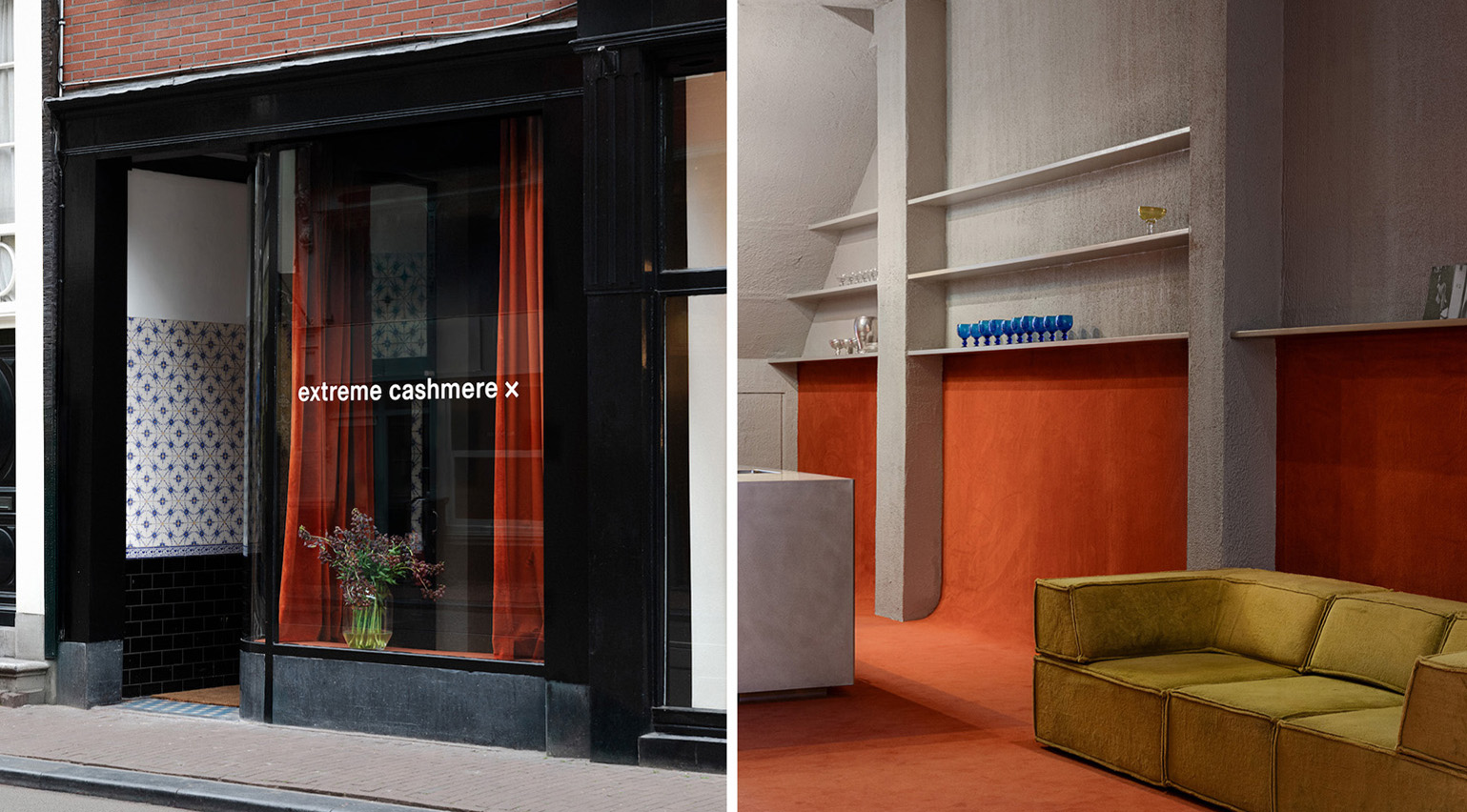 Extreme Cashmere reimagines retail with its new Amsterdam store: ‘You want to take your shoes off and stay’
Extreme Cashmere reimagines retail with its new Amsterdam store: ‘You want to take your shoes off and stay’Wallpaper* takes a tour of Extreme Cashmere’s new Amsterdam store, a space which reflects the label’s famed hospitality and unconventional approach to knitwear
By Jack Moss
-
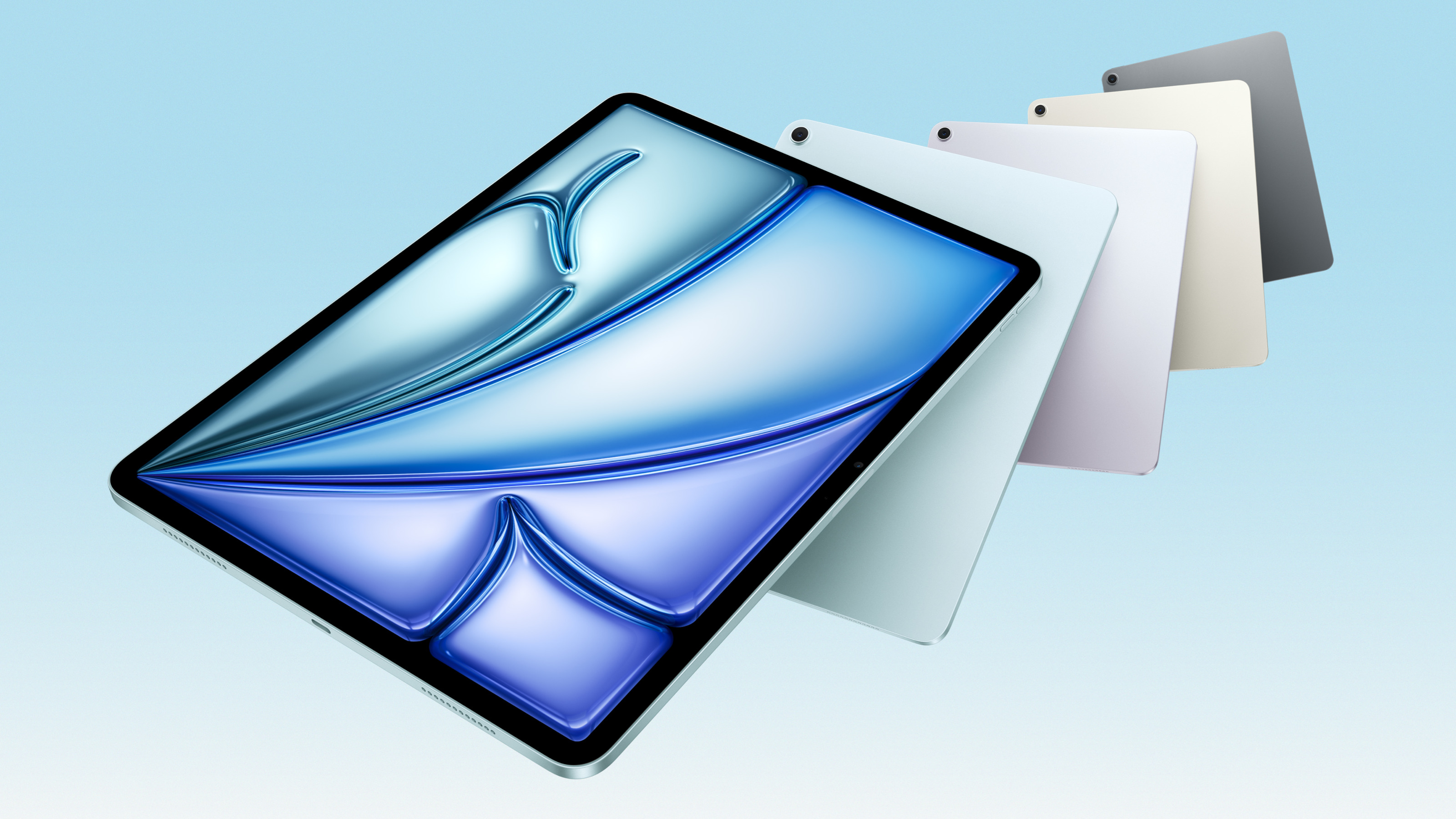 Apple updates the iPad Air with new silicon, new intelligence and new colours
Apple updates the iPad Air with new silicon, new intelligence and new coloursMeet the new M3-powered Apple iPad Air, a compact multimedia tablet built for graphics and AI and capable of outclassing many laptops
By Jonathan Bell
-
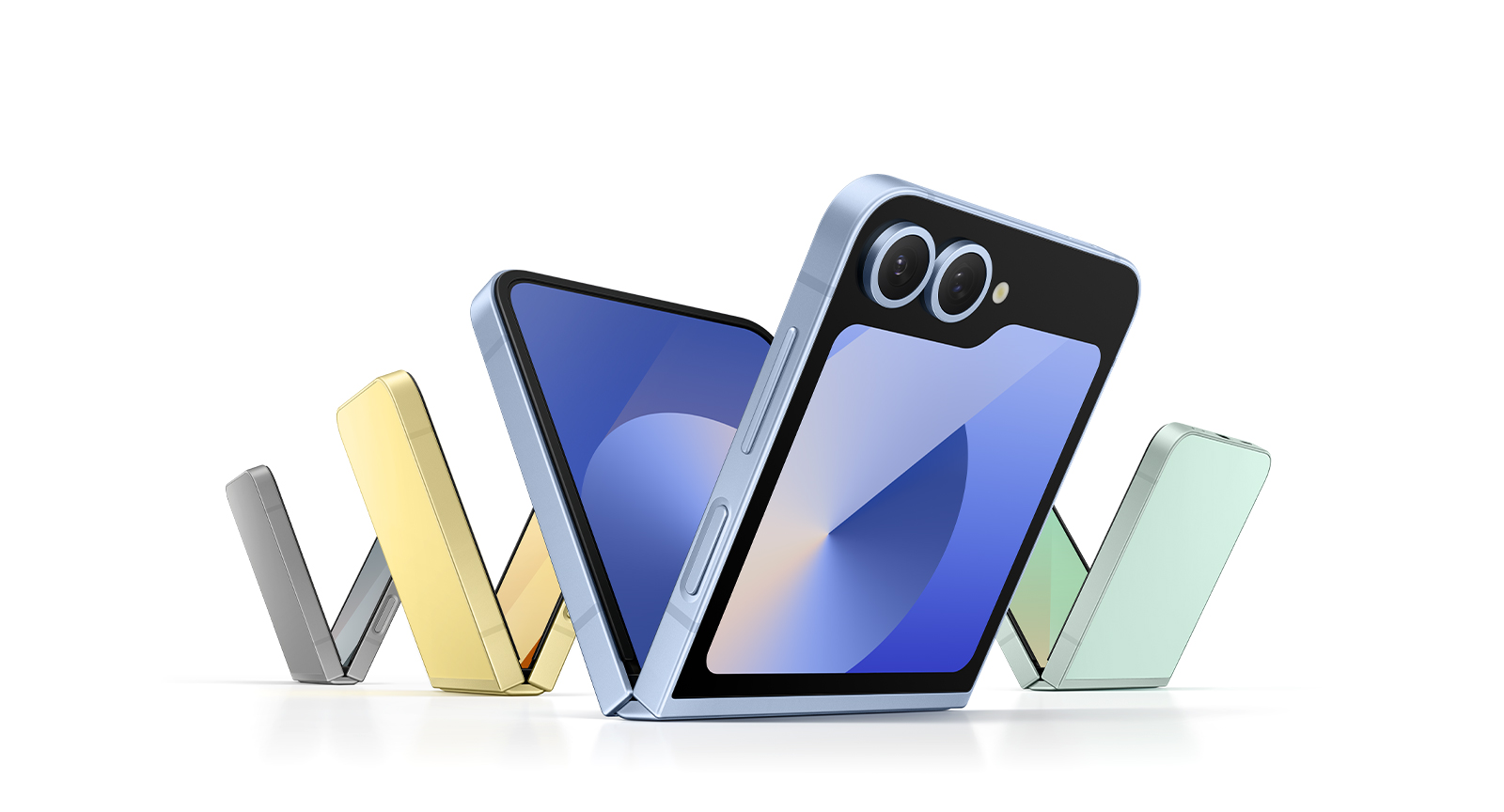 Apple is rumoured to be releasing a foldable iPhone. How should it stand out from the crowd?
Apple is rumoured to be releasing a foldable iPhone. How should it stand out from the crowd?The new model is forecast for 2026, but Apple’s competitors have already entered the foldable phone market. Is the tech megabrand late to the party, or can we expect something special from its contribution?
By Anna Solomon
-
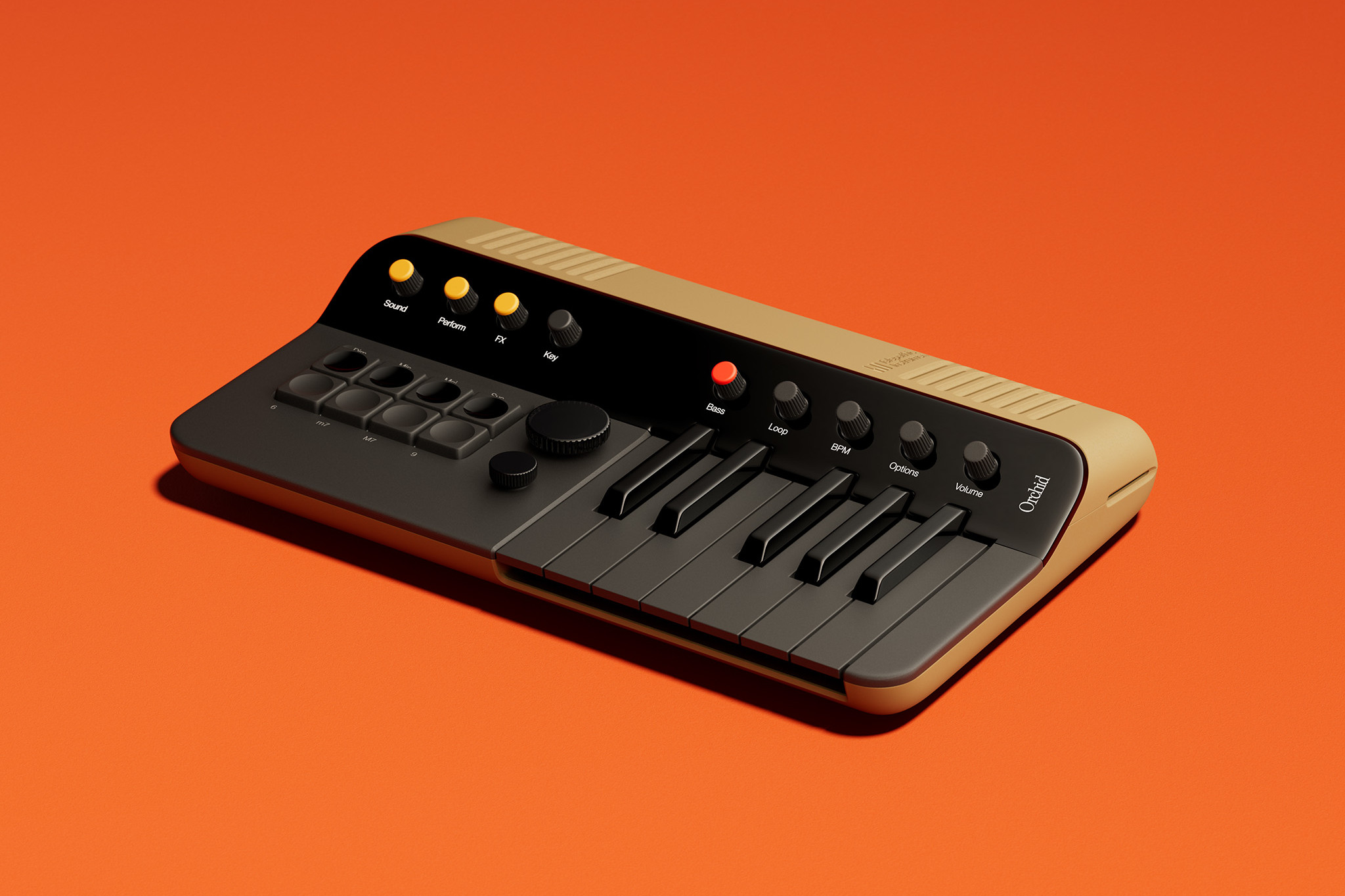 Year in review: top 10 gadgets and tech of 2024, as chosen by technology editor Jonathan Bell
Year in review: top 10 gadgets and tech of 2024, as chosen by technology editor Jonathan BellThe very best of 2024’s gadget and technology launches and stories, from emerging AI to retro gaming, laser projectors and musician’s side projects
By Jonathan Bell
-
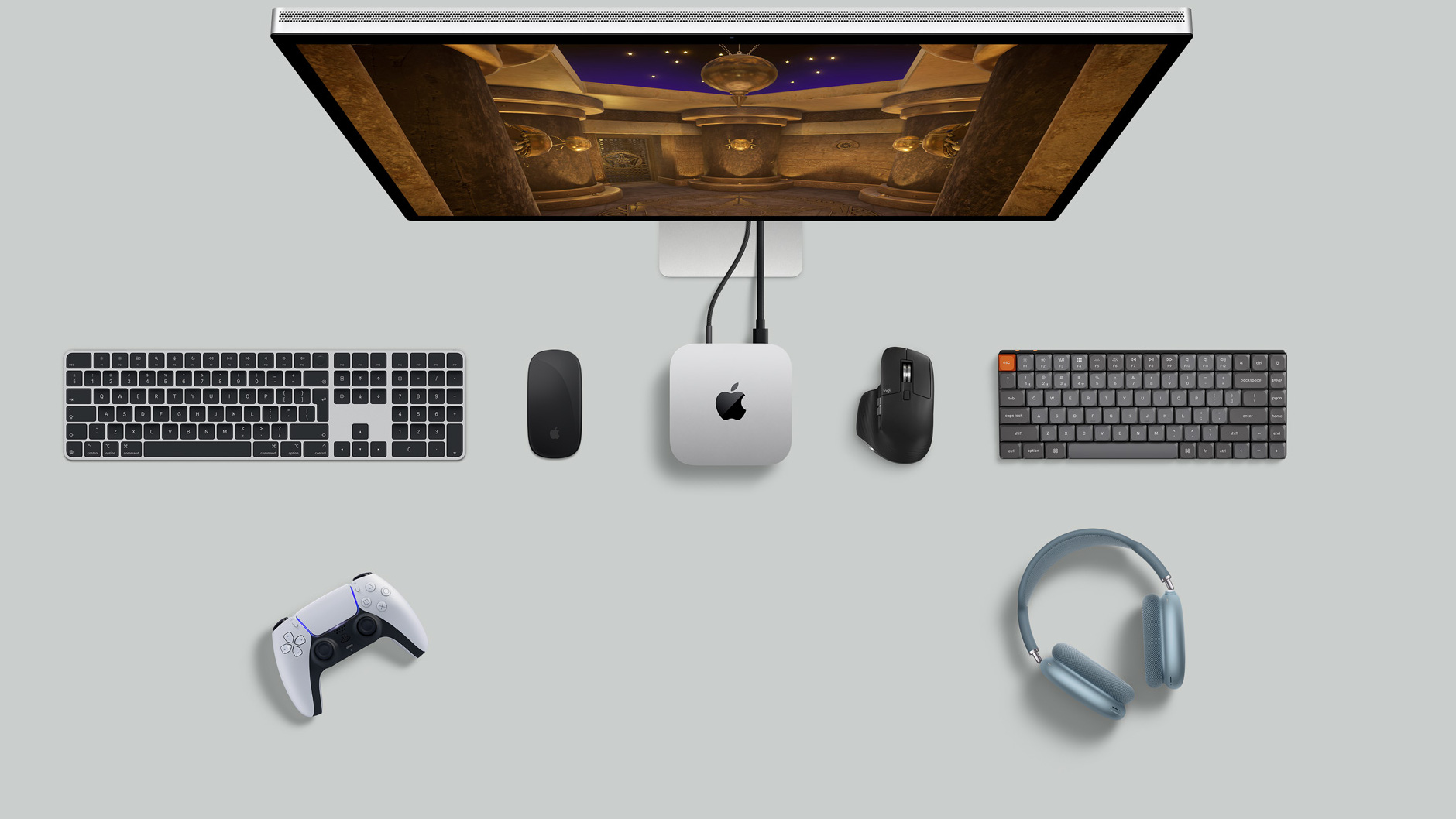 Apple’s new Mac mini is a pocket-sized powerhouse thanks to the M4 processor
Apple’s new Mac mini is a pocket-sized powerhouse thanks to the M4 processorWith the new Mac mini, Apple has squeezed its M4 and M4 Pro processors into the smallest conceivable footprint, physically and environmentally. Apple insiders tell us how
By Jonathan Bell
-
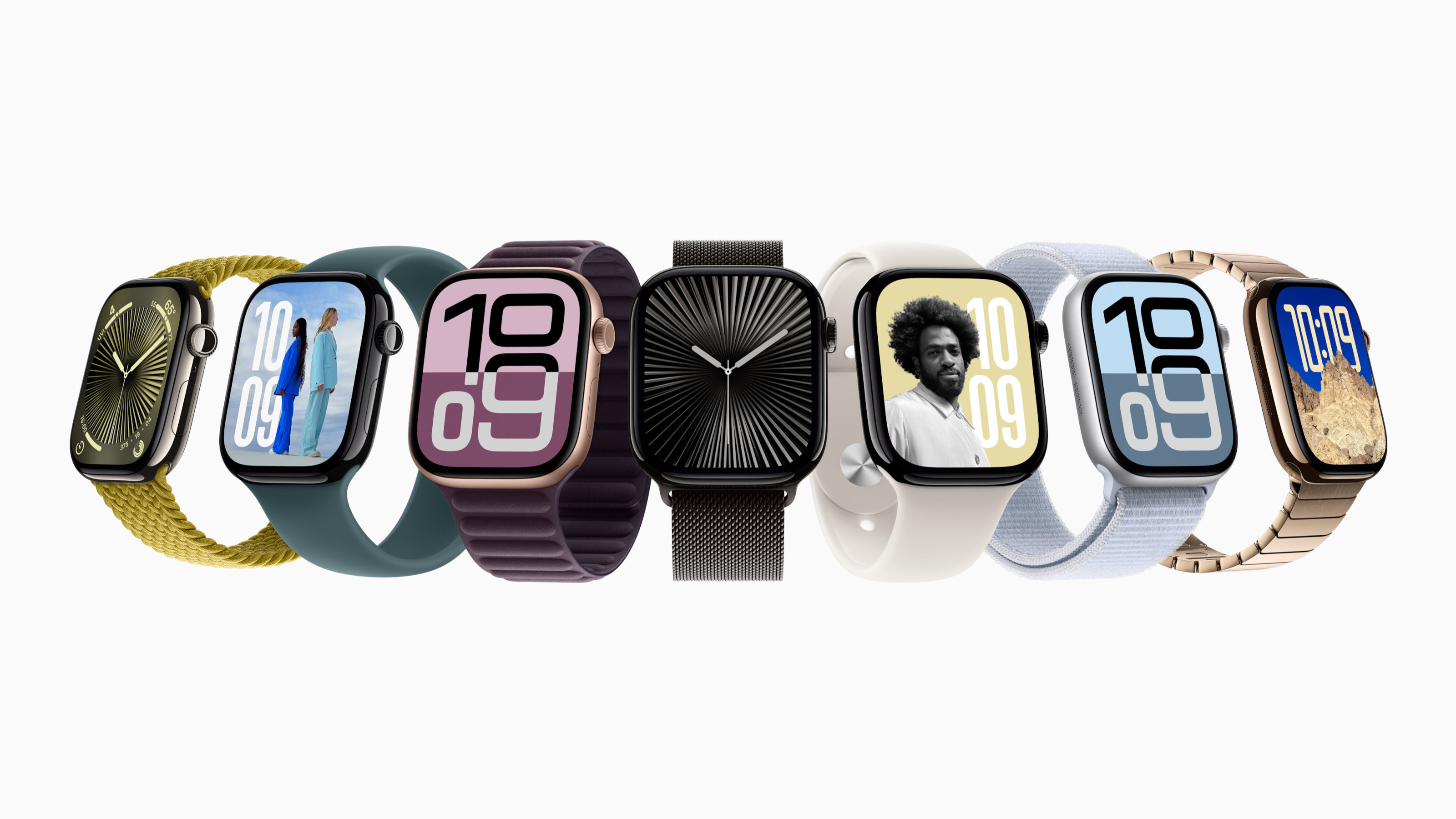 Apple’s Alan Dye and Molly Anderson discuss the design of Apple Watch Series 10
Apple’s Alan Dye and Molly Anderson discuss the design of Apple Watch Series 10In addition to the Apple Watch Series 10, Apple has also introduced a new black titanium finish for the premium Apple Watch Ultra 2; here’s what’s new
By Nick Compton
-
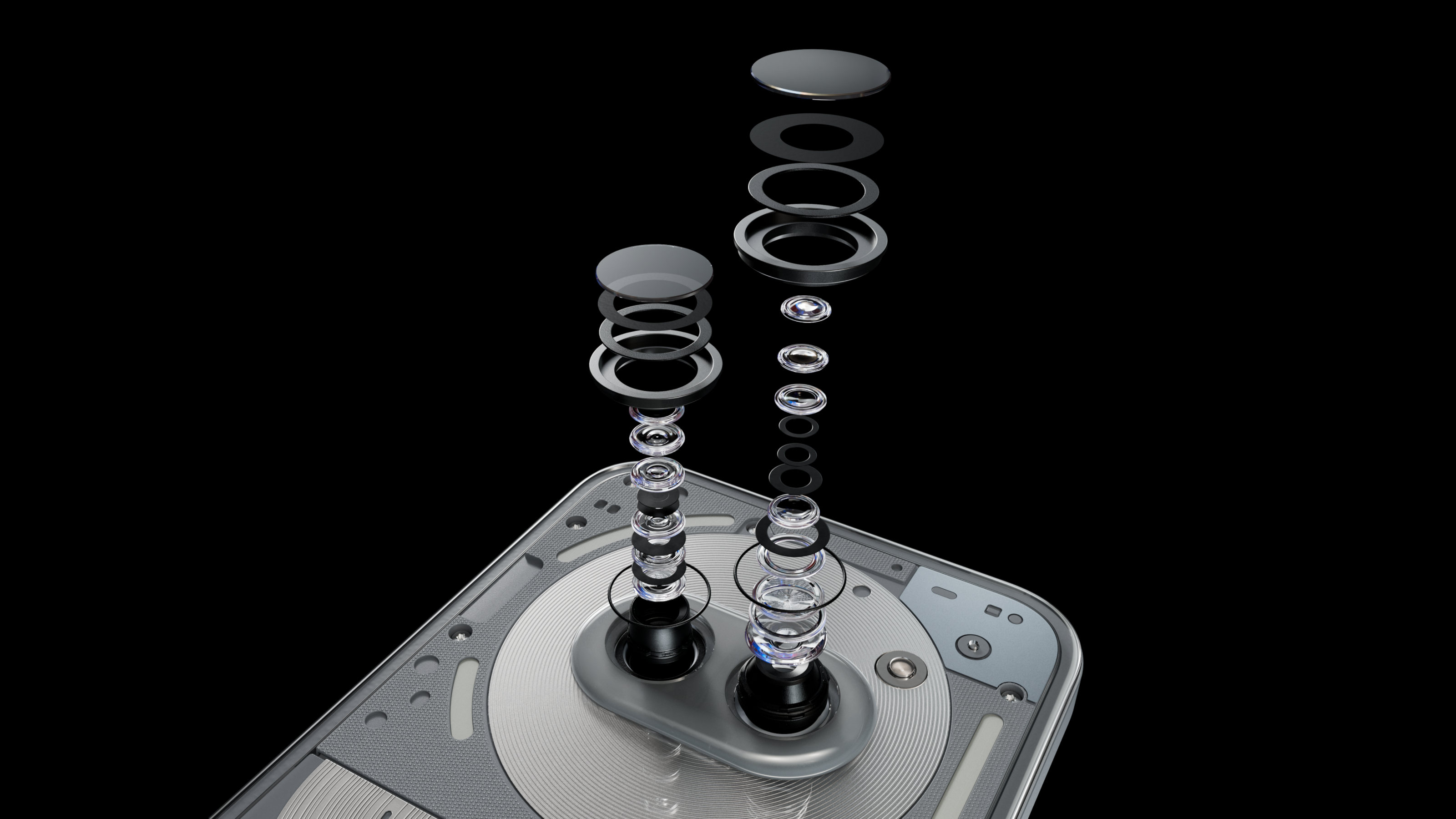 Nothing explodes its mid-range masterpiece to create the Nothing Phone (2a) Plus
Nothing explodes its mid-range masterpiece to create the Nothing Phone (2a) PlusWe get our hands on the new Nothing Phone (2a) Plus, an upgraded and enhanced smartphone that promises a better photographic experience, smarter software and more
By Jonathan Bell
-
 Watch Steve Jobs give a keynote at the 1983 International Design Conference in Aspen
Watch Steve Jobs give a keynote at the 1983 International Design Conference in AspenThe latest publication from The Steve Jobs Archive captures Apple’s co-founder giving a typically iconoclastic performance to a 1980s audience of design
By Jonathan Bell
-
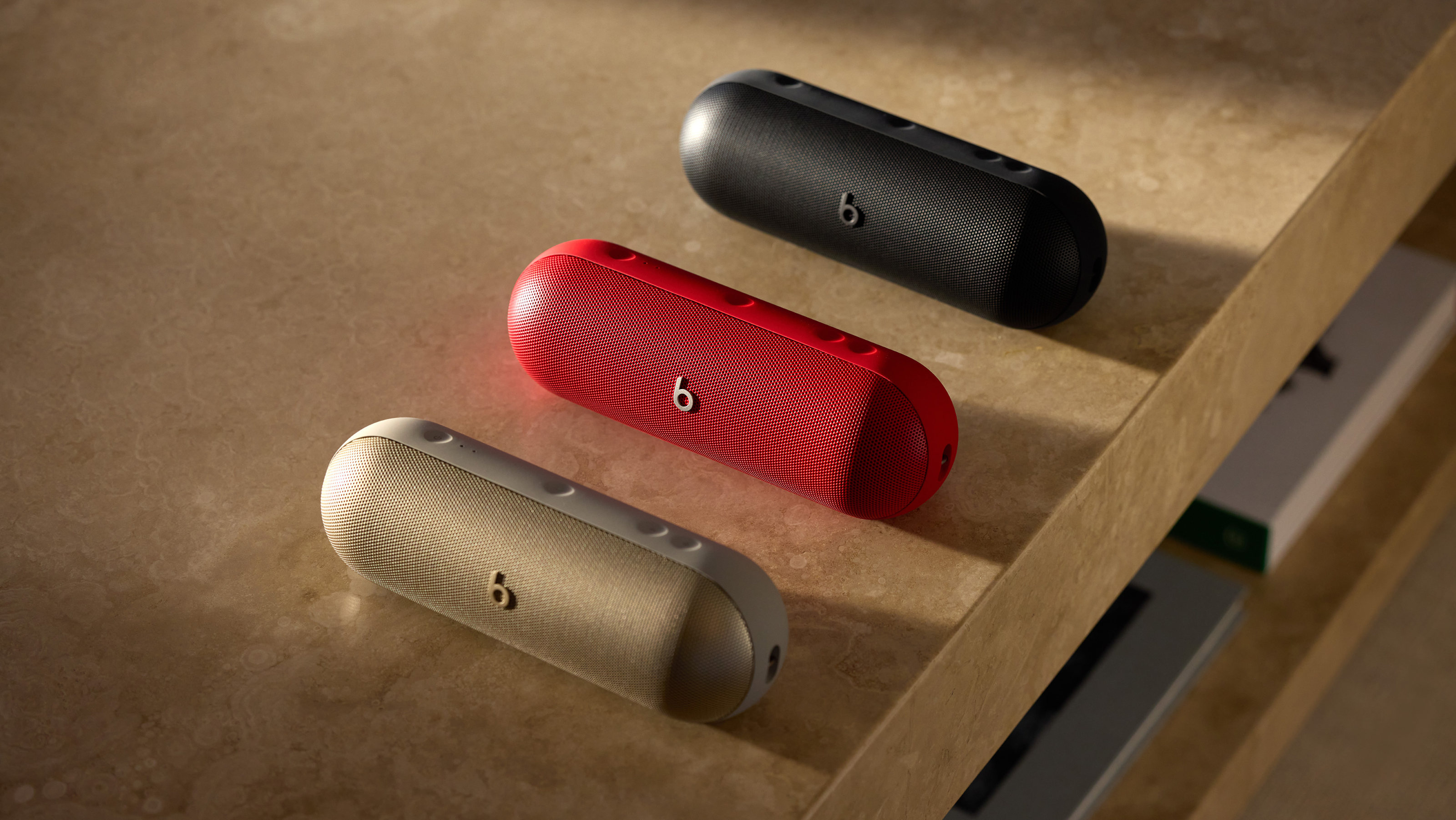 The new Beats Pill: exclusive interview with Apple’s Oliver Schusser
The new Beats Pill: exclusive interview with Apple’s Oliver SchusserOliver Schusser, an Apple Vice-President, is in town to talk Pills, thrills and heartaches. We sat down to explore the Beats portable music strategy
By Craig McLean